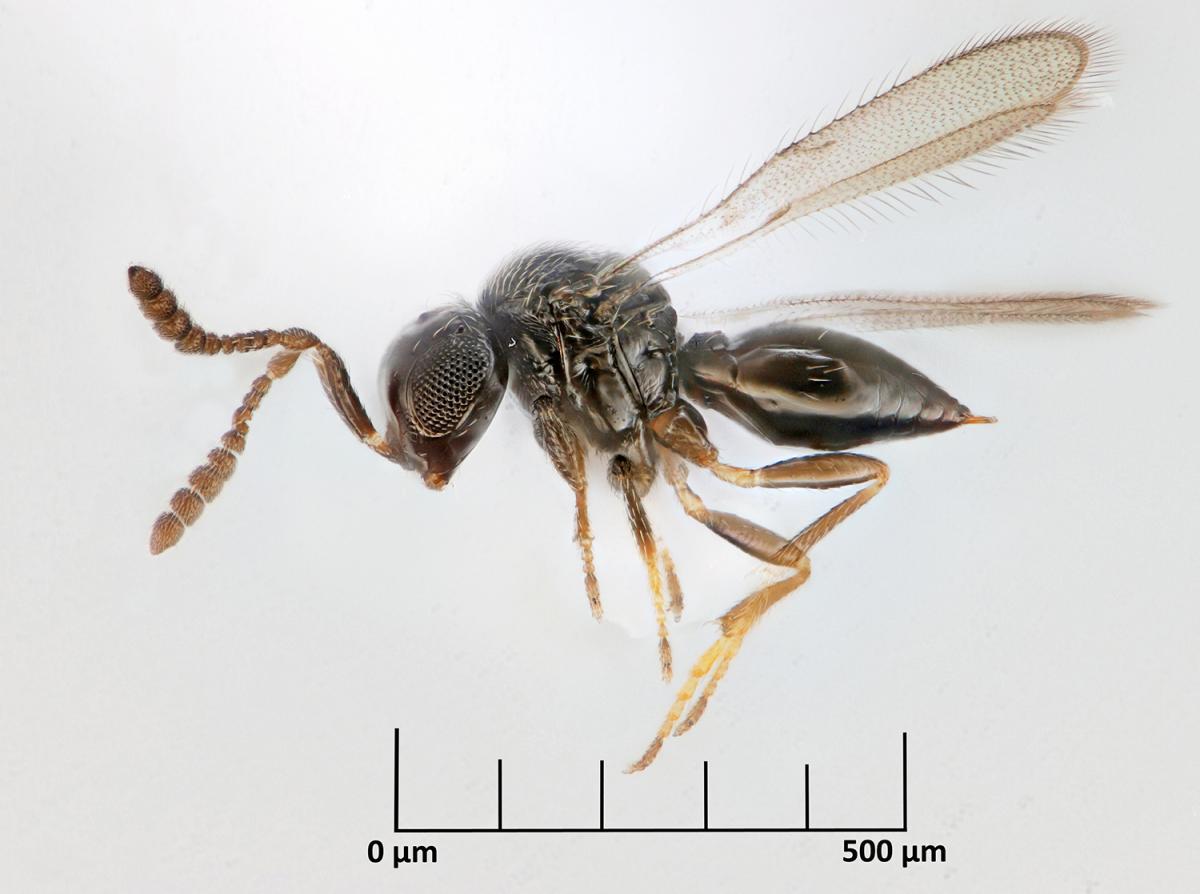Telenomus remus (Hymenoptera: Scelionidae)
Among all the life stages of fall armyworm, Spodoptera frugiperda (J. E. Smith) (Lepidoptera: Noctuidae), the adults and egg stages are the most appropriate to target or control to significantly reduce the damage caused by the pest. Habitat management strategies, such as push-pull developed by icipe targets the adults and inhibits them from laying eggs on maize/cereals. Biological control options such as biopesticides and egg parasitoids are effective for management of eggs and early instars of the pest. Among the several natural enemies of FAW already found in Africa, researchers have identified a very effective egg parasitoid, Telenomus remus (Hymenoptera: Scelionidae), which is the photographic highlight of the day.
Telenomus remus, a native parasitoid of Spodoptera litura, from Malaysia and Papua New Guinea, was introduced to many countries for management of diverse armyworms, such as Spodoptera littoralis in Africa and Spodoptera frugiperda in the Americas. Large scale augumentative releases in South America led to 90% parasitism of FAW, reducing pesticide spraying by more than 40%. This parasitoid is already reported from Benin, Cameroon, Côte d’Ivoire, Ghana, Kenya, Niger, Nigeria, Uganda, South Africa, Tanzania and Zambia. Outside Africa, T. remus has been reported to parasitize Fall armyworm in China, India, Indonesia, and Nepal. It can contribute up to 64% parasitism of eggs of fall armyworm in sub-Saharan Africa. In Africa, icipe and the Plant village Dream team focus on engaging youths in gainful employment for mass production and augumentation of Telenomus remus.

Credits: Dr Robert Copeland
